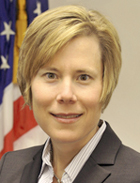
Medicare advocates are concerned about the speed with which the federal government is implementing care coordination plans for dual eligibles, according to reports.
A majority of dual eligibles — individuals who qualify as both Medicare and Medicaid beneficiaries — are eligible for long-term care facilities. They often have multiple chronic conditions and account for a disproportionate share of state and federal healthcare spending.
The Centers for Medicare & Medicaid Services, which announced demonstration projects in March targeted at coordinating care for dual eligibles, has reported strong interest in the program from states and nursing homes.
But Patricia Nemore, a lawyer at the Center for Medicare Advocacy, told Kaiser Health News that she and other advocates are “nervous about whether the plans do enough to protect dual eligibles, and more time would help ensure those concerns are addressed,” Nemore said. “The states may pledge to protect beneficiaries in a general sense, but their plans need to be concrete.”
In remarks during a panel discussion at the American Enterprise Institute on Tuesday, Melanie Bella, director of the Medicare-Medicaid Coordination Office, said 25 states have already posted care coordination plans for dual eligibles for public comment, while seven states have submitted plans to the federal government, Kaiser reported. Bella said advocate concerns about the implementation timelines are legitimate, but emphasized that urgency is necessary to get these demonstration projects underway.




